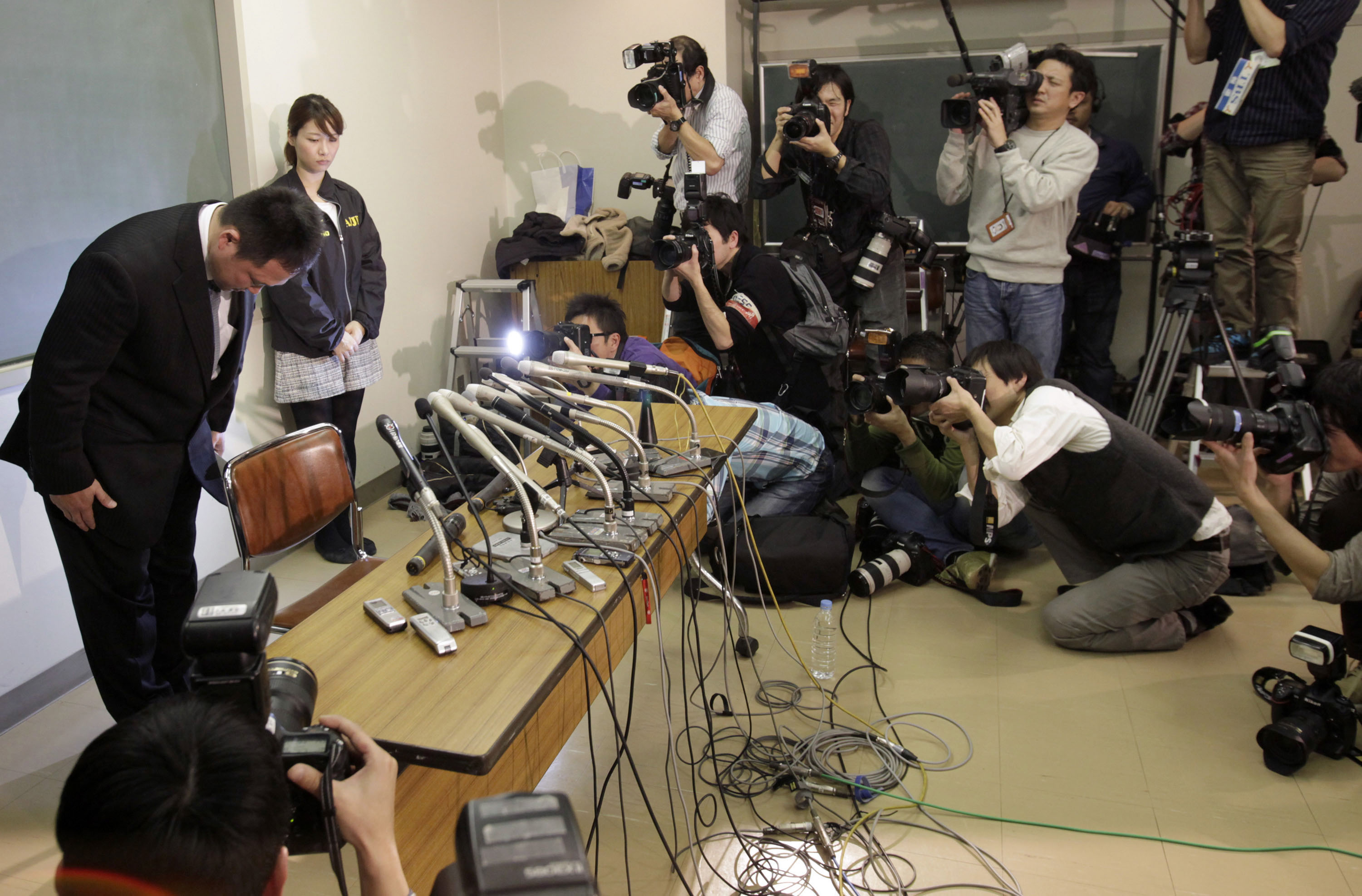News stories don't exist in a vacuum. What often makes them "news" is a confluence of factors that provide a context of interest. Though the public thinks the current story about 15 female judo athletes (jūdōka) demanding fundamental changes to the way the national team is structured and run is a self-contained news item, it wouldn't have been treated with the same seriousness had it not been bookended on the one side by a different scandal involving the high school basketball player in Osaka who committed suicide after being beaten by his coach, and on the other by the pending visit of the International Olympic Committee (IOC) regarding Tokyo's bid for the 2020 summer games.
The weekly magazine Bunshun, fulfilling its self-appointed mission of baiting the mainstream press, recently ran an article that claimed the media knew about the problems of which the women were complaining but didn't pay attention until the Osaka corporal-punishment case stimulated discussion of sports-related abuse. Asahi Shimbun, in a feature Bunshun might call too little too late, interviewed Kaori Yamaguchi, a judo bronze medalist at the Seoul Olympics who has been the media point person on the scandal. She told Asahi that last September, following the women's judo team's return from London, she heard that the team's head coach, Ryuji Sonoda, had struck several members, and after talking to the team determined the reports were true. She related her concerns to the All Japan Judo Federation and asked it to investigate the matter. Apparently, all it did was give Sonoda a warning.
When the AJJF announced in November that it was retaining Sonoda as the head coach of the national women's team, some members were outraged. Yamaguchi felt bad and apologized to them, saying she got the impression "the federation received my concern as if it were only my opinion." She told the women they needed to take their case to the Japan Olympic Committee, so they wrote a letter outlining their grievances.



